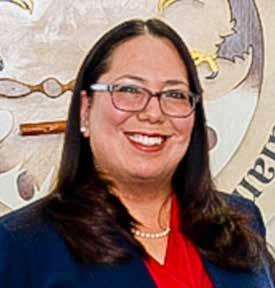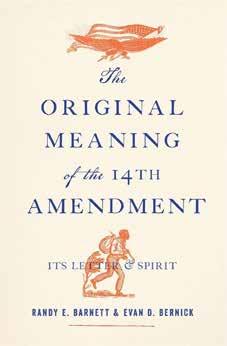
3 minute read
Diversity & Inclusion
Nonprofit Law Firm Nurtures Pipeline of Indian Law Attorneys
By Lisa M. Kpor
Advertisement
Lisa M. Kpor is a litigation attorney at Holland & Knight, LLP and the vice chair of the FBA’s Diversity and Inclusion Committee. She concentrates her practice on shareholder litigation, product liability actions, financial services litigation, and complex breach of contract cases. The call to increase diversity, equity, and inclusion throughout the legal industry rings loud and strong. Dozens of organizations and law firms have answered the call by spearheading pipeline programs aimed at preparing the next generation of diverse lawyers for successful careers in the legal profession.
One law firm has used this model to create a pipeline of attorneys devoted to practicing a specific, nuanced area of law that asserts and defends the rights of a diverse group of people—Native Americans. Through the creation of various clerkships, internships, and fellowships, the Native American Rights Fund (NARF) has demonstrated its commitment to nurturing the pipeline of Indian law attorneys.
NARF is a nonprofit law firm that fights to protect Native American rights, resources, and lifeways through litigation, legal advocacy, and legal expertise. It is the oldest and largest nonprofit law firm dedicated to asserting and defending the rights of Indian tribes, organizations, and individuals nationwide.
Since 1970, NARF has successfully asserted and defended some of the most important rights of Native Americans and tribes in hundreds of major cases in critical areas such as tribal sovereignty, treaty rights, natural resource protection, voting rights, tribal child welfare, and Indian education. NARF engages in high-impact litigation and projects that move us toward a world where Native Americans thrive as their rights, resources, and lifeways are intact and protected; promises made to them are upheld; and tribes exercise their sovereign governmental right to manage their own affairs.
NARF is governed by a board of directors composed of 13 Native Americans from tribes throughout the country. Early in NARF’s existence, these directors identified five priority areas for the organization:
• Preserve tribal existence. • Protect tribal natural resources. • Promote Native American human rights. • Hold governments accountable to Native Americans. • Develop Indian law and educate the public about
Indian rights, laws, and issues.
As part of its fifth priority, NARF has created programs to enhance the professional development of new attorneys in the field of Indian law. Indian law often takes place in federal, state, and tribal courts and venues. Indian law cases often are complex and involve novel legal issues. Federal Indian law, which focuses on the relationship between tribes and the U.S. federal government, can touch on issues of constitutional law, international law, water law, jurisdiction, and much more.
Because of this complexity, even experienced attorneys and judges are capable of misunderstanding concepts like treaty rights and tribal sovereignty. Until there is a more widespread understanding of these issues, fully asserting and defending Native American rights in the American court system will continue to prove difficult. To help address this knowledge gap, NARF offers programs for law students and recent law graduates that enable participants to gain hands-on experience in the practice of Indian law.
Each year, NARF conducts a nationwide search for law students to participate in clerkship and internship programs in its three offices—Boulder, Colo.; Washington, D.C.; and Anchorage, Alaska. The NARF summer clerkship program is a paid, 10-12 week clerkship for students who have completed their second year of law school. The NARF school-year internship program is a semester-long internship where law students may work either for financial compensation or for school credit. Clerks and interns complete projects focused on legal research and writing that reflect aspects of NARF’s broad range of practice.
NARF also invites third-year law students, recent law school graduates, and those currently serving as judicial clerks to apply for postgraduate public interest fellowships at the organization. NARF has NARF-funded fellowships, and the firm sponsors applicants for the Skadden Fellowship, the Equal Justice Works Fellowship, the Justice Catalyst Fellowship, and other similar fellowship programs.
These NARF programs are designed to expand the knowledge of new and aspiring attorneys to include










